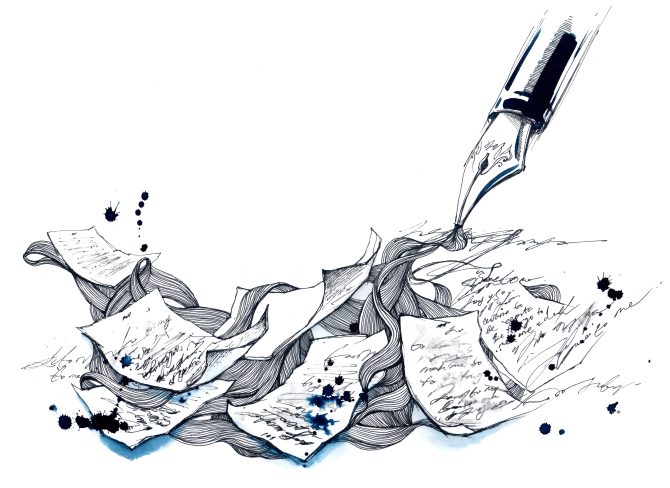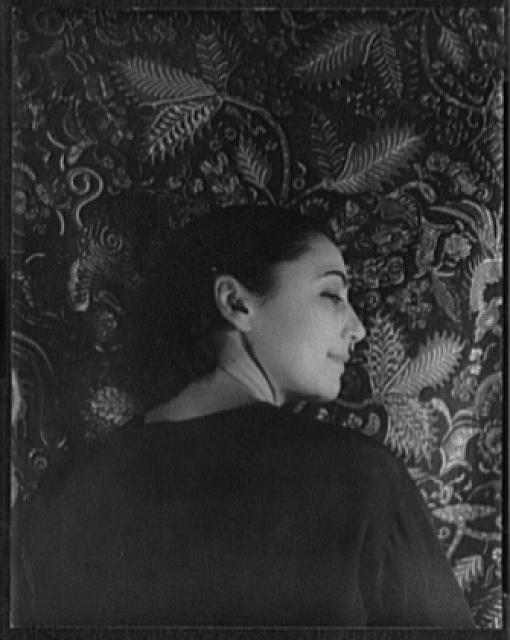Imperfection
Journal writing since I was a beanpole of a pre-teen gave me a way to say the most horrible and ridiculous things at that tart age. At 24 my journal entries revealed a messiness, at 34 there was still messiness but a glimmer of clarity, and now, well I can say that the boat has grown bigger and the waves smaller. I suspect if those thoughts had remained solely internal without expression, I would be only a cloudy intimation of my current self. Creating anything with honesty takes guts and sometimes I definitely don’t have it. Depending on the topic, I prefer to just point to little facts in hopes that the reader will construe their own meaning from the details. It’s a bit strange, though, not to interpret meaning whatsoever for a reader.

When I first requested to participate in the library blog, I was ecstatic to be welcomed. Having my words published in any form whatsoever was/is a gift! And yet, a dozen posts later, I've discovered that writer's block/slog is real. It happens often. A circling and swaying mindscape-murmuration, flitting this way and that, wondering: what to write? why? and who for? I’ve revised versions of a single blog post many times thinking that surely there MUST be the "perfect" way to express an idea.
Simultaneously, it's clear that creating art of any kind or calibre, is a worthy endeavor. Vonnegut said, "Practicing an art, no matter how well or badly, is a way to make your soul grow, for heaven's sake. Sing in the shower. Dance to the radio. Tell stories. Write a poem to a friend, even a lousy poem. Do it as well as you possibly can. You will get an enormous reward. You will have created something."
Process
It can feel like finding happy solitude outdoors with birds chirping with the right flow. Or it can make you want to pluck all your eyebrow hairs out. Or both. My proposal to you, dear blog reader, is that keeping all your distinctive ideas to yourself without finding expression is perhaps to invite a stinky kind of miasma, stymieing growth and discovery. There is only one person who has lived all the moments at this point in time, with your mind, body, genetics, and cultural history.
Part of the willingness to even begin is to risk looking foolish, being misunderstood, or perhaps even disliked (I’m looking at you, social media!). Any form of communication has its risks. And yet, what the pandemic reminded me of is how desperately, achingly, and thirstily we need artists of all kinds. We need this mirror of ourselves, especially in times as strange as these with changes like breaking waves, which are sometimes hard to gauge and navigate in an unsteady boat if you’re unprepared.
We need art daily, just as much as we need touch, food, movement, and sleep.
Dear Patrons
Speaking with library visitors at the Ask Desk who've shared that they’re working on a book, are attempting to publish their work, or are in the infancy stage of their research, a tone of gladness is clear but also there's fear or... it's almost as if perhaps they secretly think it's a ridiculous thing to attempt. To me though, I love the daring. It's admirable. And I’ll tell you too that it's one of my life goals to write a book.
Perhaps I won’t do it. Perhaps I’ll die never formally publishing a book and people will say after the funeral, “Gee, she wanted to write a book and she didn’t, eh? Pity.” Yet, there must be redemption in dreaming. This dreaming leads to seeking opportunities, growth, reading other writers’ works, and honoring my voice. If none of that leads to a final polished product…then oh well.
And so, dear reader: What is your art? What is your creation? What is your vulnerability?
Questions from Shirley, one of our fabulous Reader's Services people, and my cocreator for this first in a two-part series about writing (loosely!):
Would you share a few of the authors/books that inspired you to write? I wasn't really inspired to write by particular authors/books, although I did LOVE reading as a kid. Mainly, I started journaling at age 16 as a way to work through some tough emotions. So I guess it's more that reading helped me feel more comfortable writing, even in as a low-key format as a personal journal. Any book that shifts my perspective (which is the majority) gives me fodder for writing.
Do you aspire to write fiction or nonfiction? I've never considered writing fiction but anything is possible, right? It's about believing in my own writing enough to seek out the information I need to be a proper writer (in reference terms that's an "information need"!). Even typing this out, I realize that the term "proper writer" or "real writer" is a bit problematic. Who determines what proper writing is? Publishers? Critics? I mean I guess if nobody understands it, then it's probably not going to be useful to anyone but the writer. But if that is energizing for the writer, then who's to say it's not worth something?
Check Out These Upcoming Events
Two upcoming events connected with writing and authorship aim to inspire creativity with a deeper sense of place in nearby outdoor spaces.
- On October 8 Ian Cook will lead a walk from the Riverfront Park onto the Levee to view the vivid graffiti on the I-70 bridge underpass that resonates with him and has become part of a creative journey of self-discovery. Ian Cook is a multi-talented poet, creative writing instructor, artist, musician, and mental health advocate; he will talk about his creative processes, mental health practices, and recent work in the psychedelic-assisted therapy space, then return to the park for a writing session where folks can read/express afterward. Ian will bring writing prompts. Ian Cook's forthcoming book of poetry, Vishudda, publishes in March 2024!
- On November 4 author George Frazier and artist Karen Matheis will lead an easy hike from the top of the Oread Hotel to the banks of the Kaw—the highest and lowest points in Lawrence. Discover remnants of the ravine that ran through Old West Lawrence, learn how to identify fish crows (Corvus ossifragus) and why they’re taking Kansas by storm, and visualize the lost prairie wilderness that once sprawled east of Downtown and what might become of that landscape in future decades. George Frazier's first book is The Last Wild Places of Kansas: Journeys into Hidden Landscapes. Karen Matheis’s paintings re-interpret ideas about traditional landscapes; her work is inspired by the flat, open spaces of the K10 corridor. Learn more about these events: Local Authors & Artists Outside, opens a new window
-Theresa Bird is an Information Services Assistant and Shirley Braunlich is a Readers' Services Assistant at Lawrence Public Library.



Add a comment to: Part I: Writing For Its Own Sake